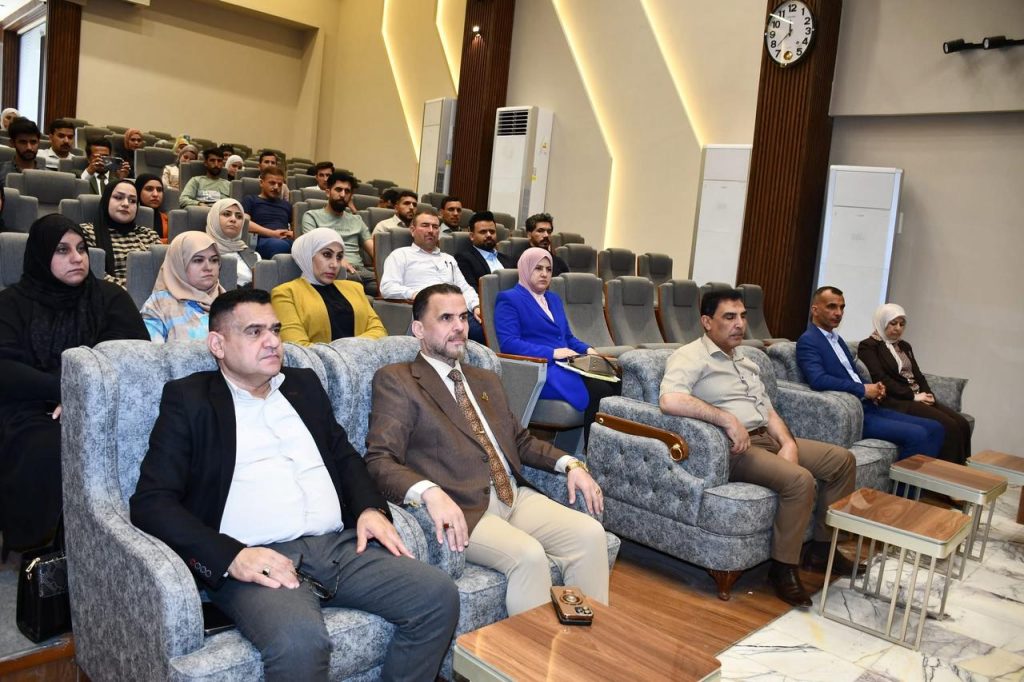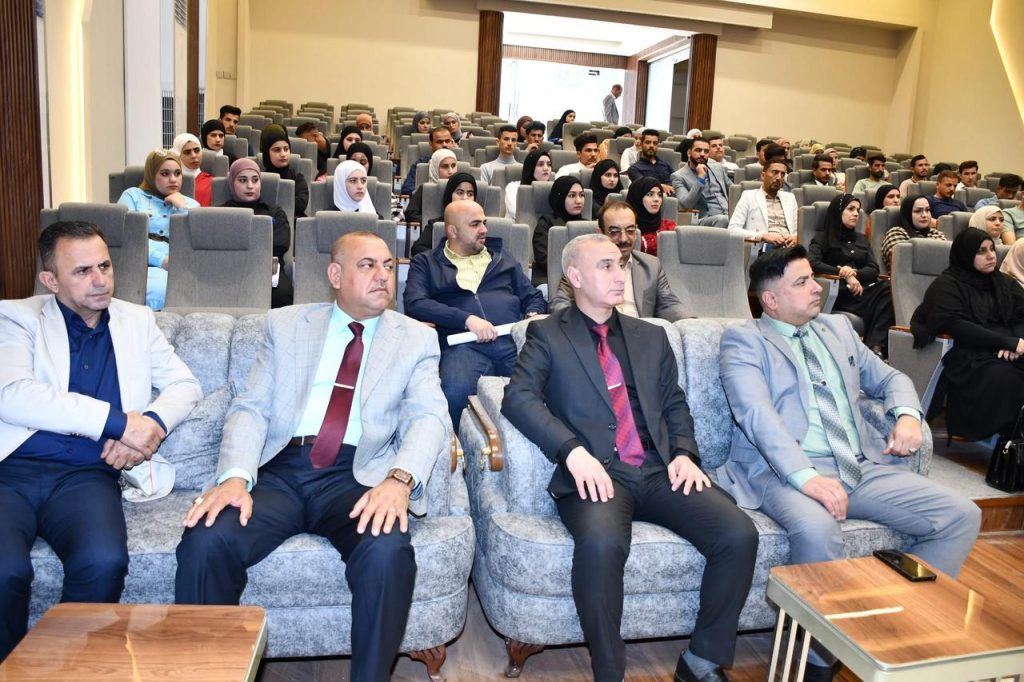
Under the patronage of the President of the University of Diyala, Professor Dr. Tahseen Hussein Mubarak, and the supervision of the Dean of the College of Education for Humanities, Professor Dr. Luay Sayhood Al-Tamimi, the Department of Educational and Psychological Sciences held a scientific seminar on the psychological benefits of fasting.
Under the patronage of the President of the University of Diyala, Professor Dr. Tahseen Hussein Mubarak, and the supervision of the Dean of the College of Education for Humanities, Professor Dr. Luay Sayhood Al-Tamimi, the Department of Educational and Psychological Sciences held a scientific seminar on the psychological benefits of fasting.
The seminar, presented by Professor Dr. Haitham Ahmed Ali, highlighted the various positive impacts of fasting on mental health. Several studies indicate that fasting enhances one’s ability to tolerate and cope with life stressors, helping individuals achieve psychological stability. This is accomplished through self-control, improved self-image, and increased self-confidence, all of which are essential for managing daily pressures.
Fasting, when accompanied by social interaction during iftar and suhoor, can also reduce feelings of isolation among those suffering from psychological distress, bringing about a sense of hope and optimism. Furthermore, fasting has been shown to reduce symptoms of anxiety, anger, and insomnia by enabling the body to focus its internal energy on vital biological functions.
The seminar also explained fasting’s impact on hormone levels. Fasting increases glucagon levels to maintain normal blood glucose by breaking down stored glucose in muscles and the liver. Both glucagon and cortisol stimulate energy production by promoting fatty acid oxidation in tissues. The body may also begin breaking down muscle proteins to obtain amino acids for glucose production, which can lead to a feeling of fatigue. These hormonal changes serve to preserve the energy supply needed for essential physiological and biological functions.







